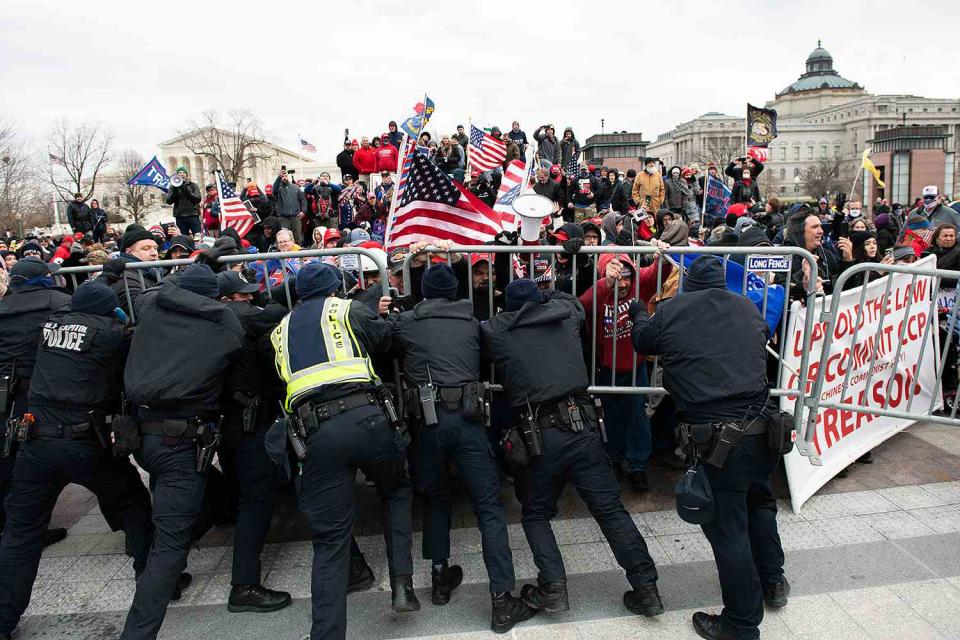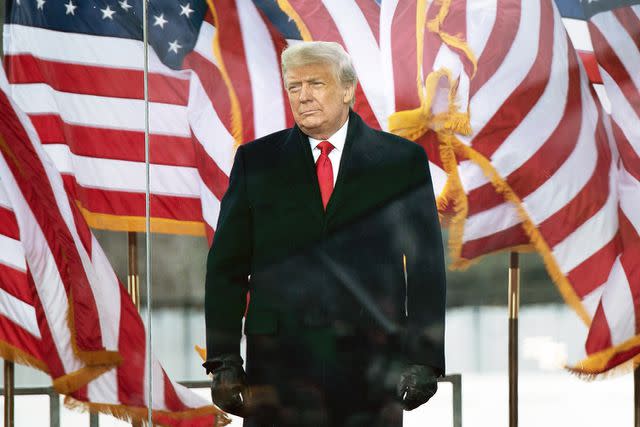Supreme Court Narrows Charge Used to Prosecute Donald Trump and Hundreds of Jan. 6 Rioters
The court was asked to weigh in on whether a federal obstruction statute can apply to protestors who stormed the U.S. Capitol — and Trump, who is accused of coordinating the insurrection

The Supreme Court has ruled that the Justice Department went too far in its prosecution of hundreds of rioters who stormed the U.S. Capitol on Jan. 6, 2021 — and, indirectly, Donald Trump.
In a 6-3 decision on Friday, June 28, the court said that a federal obstruction statute cited in cases against more than 350 Capitol rioters was not applied properly, which could complicate their sentences and cause some cases to be reopened.
Biden-appointed Justice Ketanji Brown Jackson, who has earned a reputation for carefully scrutinizing the intended context of written laws, sided with the conservative majority. Trump-appointed Justice Amy Coney Barrett wrote the dissenting opinion, which the two remaining liberal justices signed onto.
The decision also has implications for the scope of Trump's federal Jan. 6 case — two of the former president's four charges in that indictment center around the obstruction statute. If those charges are thrown out, Trump would continue to face two significant felony counts: conspiring to defraud the United States and conspiring against voters' rights.
The former president is still waiting on a separate Supreme Court decision that could impact his federal election subversion case. The court is expected to weigh in on Monday, July 1, on whether presidential immunity protects him from prosecution for the things he did while commander-in-chief. The justices could kill Trump's Jan. 6 case altogether, or narrow its scope.

BRENDAN SMIALOWSKI/AFP/Getty
Donald Trump speaks to supporters at the "Stop the Steal" rally on Jan. 6, 2021, urging them to "fight like hell" to save the countryOn Jan. 6, 2021, more than 2,000 Trump supporters forced their way into the U.S. Capitol while members of Congress were meeting to certify the results of the 2020 presidential election.
Though many expressed an intent to obstruct an official proceeding — and the riot did, in fact, disrupt Congress by forcing evacuations as a violent mob breached the Capitol — the federal statute for that type of crime is phrased in a way that focuses more on tampering with evidence than physical obstruction.
The Supreme Court was tasked with unpacking the exact language of the statute, to determine whether it serves as a catch-all for obstruction efforts, or is limited to physical evidence. Much of the argument centered around the word "otherwise" in 18 U.S. Code § 1512(c)(2), which was enacted with white-collar crime in mind.
18 U.S. Code § 1512(c)
Whoever corruptly:
alters, destroys, mutilates, or conceals a record, document, or other object, or attempts to do so, with the intent to impair the object’s integrity or availability for use in an official proceeding; or
otherwise obstructs, influences, or impedes any official proceeding, or attempts to do so, shall be fined under this title or imprisoned not more than 20 years, or both.

Hundreds of rioters have already been convicted and sentenced on the obstruction charge, though most were charged with other crimes as well.
Trump, who sowed the seeds of an insurrection after losing the 2020 election, was charged with both conspiring to obstruct an official proceeding and attempting to obstruct an official proceeding.
At a "Stop the Steal" rally on the morning of Jan. 6, Trump urged his supporters to march through Washington and help Republicans in Congress "take back" their country, saying, "If you don't fight like hell, you're not going to have a country anymore."
For more People news, make sure to sign up for our newsletter!
Read the original article on People.


